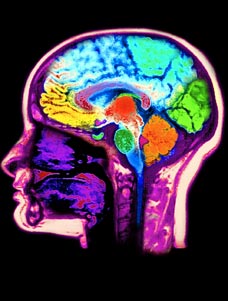Magnetic success drawing in more patients
 A team of psychiatrists and neuroscientists at Monash University is claiming success in tests using intense magnetic fields to treat patients with drug-resistant depression.
A team of psychiatrists and neuroscientists at Monash University is claiming success in tests using intense magnetic fields to treat patients with drug-resistant depression.
The university’s new Transcranial Magnetic Stimulation (TMS) clinic has treated 100 patients with a long history of mental illness; experts at the Monash Alfred Psychiatry Research Centre (MAPrc) say the treatment works to put the symptoms of depression into remission.
Monash University researchers say Transcranial Magnetic Stimulation (TMS) will give hope to the 30 per cent of patients diagnosed with clinical depression but who do not respond to medical or psychological treatment.
TMS uses a magnetic field to stimulate the front area of the brain including an electrical current in the nerve cells, which increases activity according to the deputy Director of MAPrc, Professor Paul Fitzgerald.
“Transcranial magnetic stimulation, or TMS, is a straightforward non-invasive procedure which takes only 45-minutes so people do not need to be admitted to hospital,” Professor Fitzgerald said, “depression affects mood, but it also affects concentration, focus and the ability to think positively about things. It seems by making the front of the brain more active it re-establishes the capacity of the ‘thinking part' of the brain to control emotions.”
The therapy has been provided for free to many public patients, this year will see proceeds from the DeCastella run for Mental Health Research on 25 August used to raise funds to allow access for even more patients.
To register for the fund-raising run visit the DeCastella website.







 Print
Print